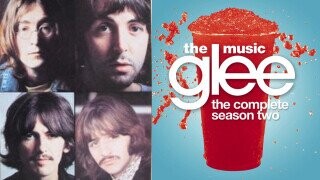The Only Successful Recording Of 'Blackbird' Came From The Cast Of Glee

On the fourth day of Christmas, my true love gave to me
Four calling birds ...
"Four calling birds" is the line in the song. At least it is in the version we know best. But for a few centuries, the line was "four colly birds." Then singers changed it to "calling birds" simply because no one knows what "colly'' means. Colly is an old word that means black, so this is yet another day when your true love sent you a new species of bird—this time, blackbirds.
"Blackbird" makes us think of the Beatles song, a song that isn't really about birds at all, at least not the flying kind. In '60s England, "bird" meant girl, and the "black" in the song meant "Black American." Paul McCartney said he wrote it after hearing about protests in Little Rock—a lot of sources take this to mean protests around the Little Rock Nine from the previous decade, but there was also a fair amount of stuff going on in 1968 itself.
Don't Miss
This wasn't supposed to be a hidden meaning or anything. Some people even thought the racial theme was stronger than it actually was: A fellow named Charles Manson thought the song called for all-out race war.
Like many Beatles songs, "Blackbird" was not released as a single. The White Album produced only one single, "Ob-La-Di, Ob-La-Da" (and even that never released as a single in the US or UK). Dozens of other acts have done covers of "Blackbird"—Crosby, Stills & Nash, Carly Simon, Dave Grohl—and these too never came out as singles. Only one version was released as a single, and so the bestselling version of "Blackbird" was the one recorded by the cast of Glee.
For those of you too young or too old to remember: The show Glee aired from 2009 to 2015 and was about a group of kids singing unintentionally sacrilegious covers of famous songs. During those six years, the cast released over 400 singles (nearly all cover versions), and over 200 of them charted, making The Cast of Glee the most successful artist of all time, according to one arbitrary metric. This was such a travesty that the world collectively decided the age of buying music was done, and so we largely switched to streaming.
and a partridge in a pear tree!
Top image: Northern Songs, Columbia Records
